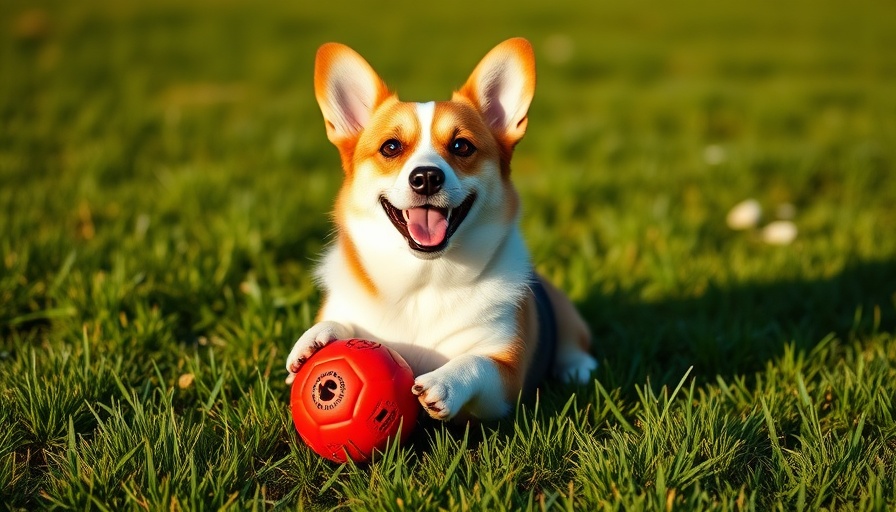
Is Cat Ownership Evolving Into a Luxury Investment?
As the socio-economic landscape shifts and costs rise, a recent study sheds light on a worrying trend in the UK: cat ownership is increasingly becoming a luxury reserved for the affluent. The CATS Report 2025 from Cats Protection reveals that pedigree cats now constitute a staggering 51% of newly-acquired felines, a significant change that reflects deeper societal issues.
The Changing Face of Cat Ownership
The rise in pedigree ownership is not merely a matter of personal preference. Various factors contribute to this trend, particularly the financial aspect of caring for these animals. In a world where the cost of living has surged, many families are finding it increasingly difficult to accommodate the expenses associated with pet ownership. This is highlighted by the statistic that 21% of cat owners who surrendered their pets cited financial constraints as their primary reason.
Moreover, the demographics of cat ownership are shifting. The most significant increase in cat guardianship is among the 18-34 age group, with nearly half (49%) choosing pedigree breeds over mixed-breed cats, known as moggies. This contrast starkly with a decline in ownership among those aged 35-54, signalling a generational divide not only in pet ownership but likely in the attitudes towards animal care.
Health Implications of Pedigree Preferences
In an era marked by ethical considerations and health awareness, the popularity of certain pedigree breeds raises urgent concerns. Many popular breeds, such as Persians and Scottish Folds, are known for genetic conditions linked to their distinctive appearances. The CATS Report highlights that 7% of recently acquired pedigree cats may suffer from hereditary health problems, prompting questions about the responsibility of breeders and owners alike.
This growing trend towards specific breeds dilutes the ethos of animal adoption, typically associated with saving lives rather than conforming to aesthetics. It reflects not only changing preferences but also a distressing indictment of society’s values regarding where we place importance in our furry companions.
The Impacts of Increased Financial Pressure
Financial pressures extend beyond initial purchase costs; caring for a cat can incur significant ongoing expenses, from veterinary bills and grooming to feeding. As reported, younger, wealthier individuals are more inclined to purchase their pets rather than adopt them from shelters, causing a shift in the animal welfare landscape. In doing so, a growing divide emerges between economically privileged cat owners and those who may have to give up their pets due to financial strain.
The welfare of cats is further challenged by a decline in annual vet visits. Currently, only 64% of cats receive regular veterinary check-ups, which are critical to maintaining their health and happiness. Many owners cite costs and stress as deterrents, indicating a profound need for a shift in accessibility to veterinary care, especially for lower-income households.
Social Media’s Role in Pet Ownership
Interestingly, the advent of social media has drastically altered how pet owners seek information and build community connections. Approximately 45% of individuals seek cat-related advice online each month, heavily influenced by platforms like TikTok and YouTube that cater specifically to younger audiences. This shift represents a sweeping change from traditional resources like veterinarians and pet books to a more informal, peer-led environment where advice is often shared.
While these platforms can provide valuable insights into pet care, they also carry risks of misinformation. Consequently, it becomes critical for pet owners to approach advice from social media with caution, weighing their recommendations against professional guidance.
Building Community and Access
The appeal of pet ownership should not hinge solely on wealth; it should encompass accessibility and community support. Advocating for animal adoption should be emphasized within local communities, underscoring the happiness and companionship that rescue pets can bring.
Furthermore, animal welfare organizations can certainly collaborate with local businesses and veterinarians to increase affordable care options for underprivileged pet owners, effectively closing the gap between those who can and cannot afford the joys of pet ownership.
Your Voice in the Conversation
In light of these findings, how do you perceive your role as a pet owner? Do you think the shift in cat ownership reflects larger societal issues? Share your thoughts in the comments below and consider how we as a community can support responsible pet ownership that isn't solely reserved for the affluent. Together, we can work toward a future where every pet has a loving forever home.
Call to Action
Advocating for pet adoption and community support not only helps ensure that every cat finds a home but also enriches our own lives. Consider partnering with local shelters or initiatives aimed at providing resources to pet owners and promoting responsible pet ownership.
 Add Row
Add Row  Add
Add 




Write A Comment